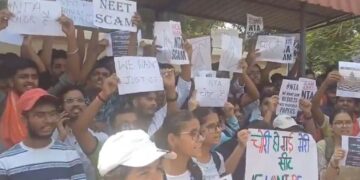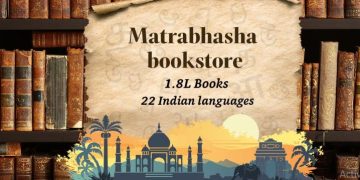In keeping with the pioneering spirit of liberal education at FLAME University, a team of undergraduate students have created an open-access archive of community cookbooks from across India. The ‘Indian Community Cookbook Project’ archive contains digitized multilingual, region-specific community cookbooks that include handwritten and printed recipes across Indian languages. Further, it also utilizes cultural mapping tools to critically engage with questions of inclusion and exclusion of communities in cookbooks be it a the temporal evolution of culinary histories (Bengali, Ango-Indian, Tamilian, and Goan communities so far) or a spatial map of contemporary Indian cookbooks plotted across India. The project works towards being an inclusive, open-access archive.
Ananya Pujary, Khushi Gupta and Muskaan Pal of FLAME University created the ‘Indian Community Cookbook Project’ under the guidance of Dr. Maya Dodd as a part of their Digital Humanities course. The project continues to grow as they solicit more contributions via their social media handles on Twitter (@CookbooksIndian) and Instagram (@indiancommunitycookbooks).
They presented their project at the 6th Oral History Association of India conference, which was held in early March 2021 in collaboration with the Department of Humanities at FLAME. In keeping with the growing conversation around digital archives, they also presented this work at Lancaster University’s Digital Heritage Initiative, an international workshop, in March as well.
According to Dr. Maya Dodd, “This project, along with others created by undergraduate students in Digital Humanities courses, will significantly add to the growing awareness of the cultural history of India. This project demonstrates how student efforts can really build up spaces for digital public history.”
Dr. Dishan Kamdar, Vice Chancellor, FLAME University said, “This is a tremendous effort executed perfectly by the young group of students. This cookbook is a treasure trove that will help preserve the rich culinary learnings which have been passed on from generations to future generations to come. It will provide ease in accessibility to such great resources which otherwise would be a great hassle to access individually.”










